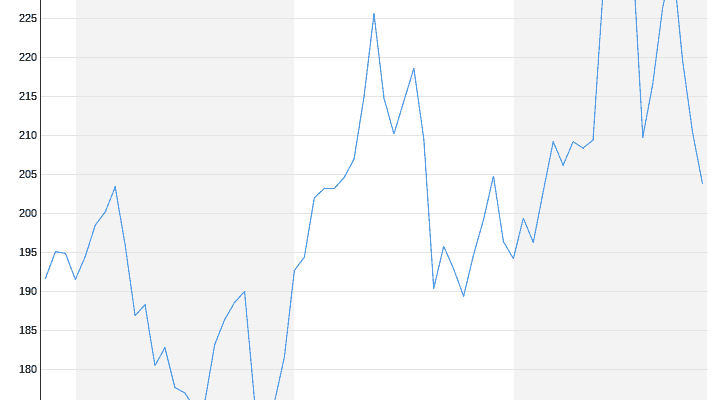Tuesday, September 28, 2021
Little enthusiasm in Hamburg
Hapag-Lloyd joins JadeWeserPort
In two years’ time, Hapag-Lloyd plans to put new large freighters into operation. Germany only has a port in Wilhelmshaven that such ships can call at. The shipping company is now acquiring a stake in the port. This will revitalize the debate about cooperation between the ports. Because Hamburg fears freight rates.
The shipping company Hapag-Lloyd enters the only German deep-water port for oversized container ships in Wilhelmshaven. With the announcement, the company at JadeWeserPort and in Lower Saxony raised hopes of increasing handling figures. In Hamburg, however, there are fears that Germany’s largest port could lose container traffic. The move by the major Hamburg shipping company is also driving the discussion about a division of labor between the German ports in order to compete with Rotterdam and Antwerp.
Hapag-Lloyd wants to buy 30 percent of the JadeWeserPort into the operating company Container Terminal Wilhelmshaven (CTW). In addition, they want to take over 50 percent of the Rail Terminal Wilhelmshaven (RTW). These shares previously belonged to the Danish shipping company Maersk. The terminal operator Eurogate continues to hold the remaining shares. Silence was agreed on the purchase price. Because approval from the antitrust authorities is required, the deal is expected in a few months.
New large freighters from 2023
The JadeWeserPort, which went into operation in 2012, could handle 2.7 million standard containers (TEU) annually, but the utilization rate has so far been well below expectations. But even the largest ships can enter this port fully loaded with a draft of up to 16.5 meters regardless of the ebb and flow of the tide. Hapag-Lloyd plans to put new large freighters into service from 2023. Maersk will stay with the port as a customer, said Thomas Eckelmann, chairman of the group management of Eurogate.
The city of Hamburg holds a minority share of 14 percent in the largest German shipping company and also sits on the supervisory board. Finance Senator Andreas Dressel commented on the deal on Twitter rather critically: “With regard to the effects for Hamburg, we are not yet convinced of this,” he wrote. “It will be important to at least partially compensate for any cargo losses for Hamburg in a timely manner – ideally as part of a port cooperation in the north. We are working on that.”
The German container ports have different strengths and weaknesses in terms of access, capacity and hinterland connections. Hamburg (2020 turnover: 8.5 million TEU) is by far the largest port and has a lot of industry right at the port. However, large ships can only pass the long approach with a reduced load despite the deepening of the Elbe. Wilhelmshaven (2020: 423,000 TEU) is remote, the railway connection will not be fully electrified until the end of 2022. In 2020, around 4.8 million TEU were handled in Bremerhaven.
In addition, the handling in the German ports is less automated and therefore more expensive than the competition in the Netherlands or Belgium. The logistics companies Eurogate with roots in Bremen and HHLA in Hamburg have therefore been talking about merging for a long time, but so far with no result.
